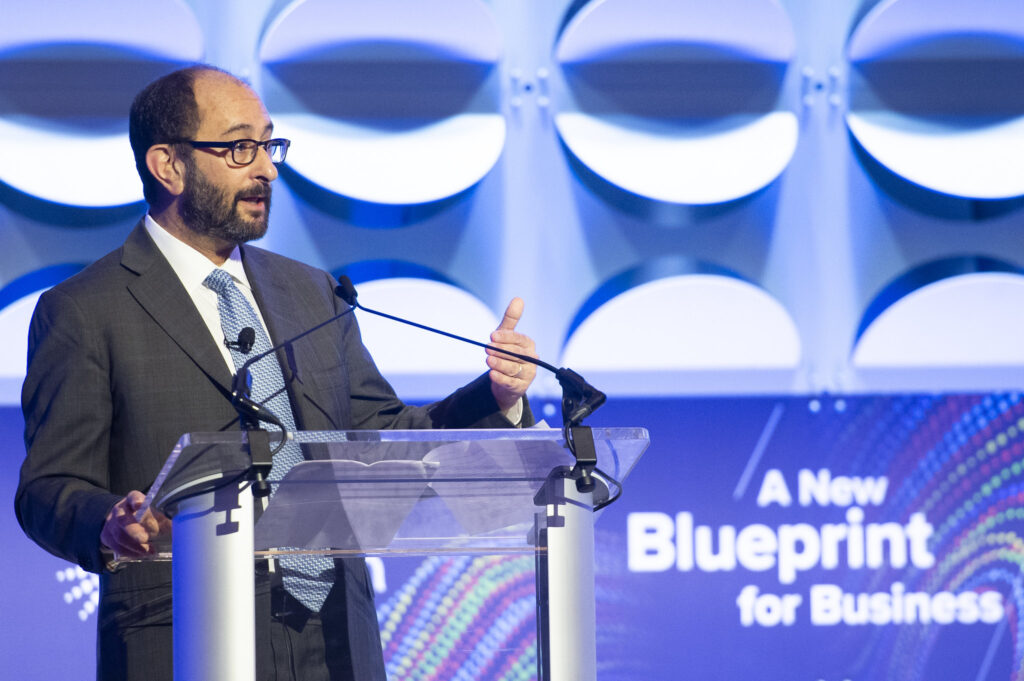by Aron Cramer, CEO of Business for Social Responsibility (BSR) and ETH Ambassador, 6 May 2021
The world has delivered more than enough bad news over the past year. COVID has left a wide swath of loss and damage. The persistence of racial injustice – in the United States and beyond – has been made clear. And democracy and human rights are facing a challenge in all corners of the world.
And while the climate crisis continues to deliver environmental, economic and public health problems, there are in fact reasons for optimism that have emerged over the past year. While the scope and urgency of the challenge cannot be underestimated, the last year has seen many positive developments.
Ambition is beginning to match the scope and scale needed to reach the objectives of the Paris Agreement. Just recently, on Earth Day 2021, the United States, Japan and Canada all made significant increases in their target carbon reductions. Hundreds of companies have now embraced net zero carbon targets no later than 2050. And we are seeing similar ambition from so-called heavy emitters in the oil and gas, transport and logistics, and other sectors like cement and steel. Net zero has gone quickly from a fringe idea to the new mainstream – and not a moment too soon.
All this ambition will be insufficient, however, unless it is backed up by real action.
Here also, there are signs of real progress.
First, follow the money: investors are shifting capital to the energy transition. Funds applying environmental, social and governance (ESG) principles captured $51.1 billion of net new money from investors in 2020 — the fifth consecutive annual record, according to Morningstar. In 2019, investors funneled roughly $21 billion into funds that apply ESG principles. Much of this is focused on climate. What’s more the central banks of the major economies around the world have also banded together to make climate one of their priorities.
Regulators are also acting. The European Union has been establishing numerous new directives through its Green Deal, including on climate, human rights due diligence, and reporting and disclosure. The new Biden Administration has taken a “whole of government” approach to climate, shaping infrastructure investments with climate as a defining feature, advancing climate diplomacy, and creating other financial incentives to accelerate the energy transition. Cities from Oslo to Houston are also reimagining cityscapes to put them on a climate-friendly path.
Innovation is also enabling a shift. Automakers from Volkswagen to General Motors, in addition to “born electric” companies like Tesla, are moving up the date of the full electrification of passenger vehicles. Tech companies like Google and Microsoft are moving to an all clean energy model, but importantly are also enabling companies in other sectors to make the transition. And the rise of companies like Impossible Foods and Beyond Meat are delivering taste and nutrition without animal proteins.
We are extremely far short of declaring victory. A dangerous amount of warming is already “locked in,” and we can expect more damage to people and our livelihoods no matter what comes next. But we can also begin to see a pathway that will stabilize the climate, preserve our livelihoods, unleash innovation, and protect public health.
After all the disruption of 2020, that sounds like an appealing alternative. Let’s make it happen.
Watch the ETH Global Lecture:
ETH Global Lecture Series: Unusual Partnerships for Planetary Action with Aron Cramer (BSF) and Nina Buchmann (ETH Zurich), moderated by Chris Luebkeman (ETH Zurich)
Links:
Website: www.bsr.org
Twitter: @aroncramer and @BSRnews;
LinkedIn: @aroncramer and @BSRnews
About the author

Aron Cramer is recognised globally as a preeminent authority on sustainable business. Aron joined Business for Social Responsibility (BSR) in 1995 as the founding director of its Business and Human Rights Program, and later opened BSR’s Paris office in 2002, where he worked until becoming President and CEO in 2004. In April 2021, he was the main guest in the ETH Global Lecture “Unusual Partnerships for Planetary Action”.

